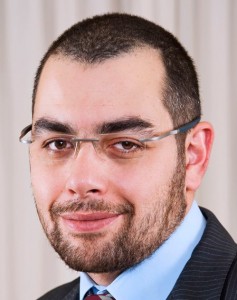
Is political Islam dead? Are the so called “Islamic Movements” suffering their final moments following the ouster of President Mohamed Morsi and the ruling Muslim Brotherhood? That is indeed a claim that keeps on getting more attention in Egypt these days.
The Myth:
According to many pundits, 30 June has dealt a virtual knockout to the so called political Islam. With the millions who protested against the Brotherhood regime and the imprisonment of their leadership, it is safe to assume that we have seen the last of them.
The Reality:
While political Islam is suffering a regional setback, it will be imprudent to discount it from ever coming back.
First, we must not forget that 30 June has been no more than a catalyst. We might remember from high school days that catalysts affect the rate of reactions but not their equilibrium. Political Islam is a matter of fact that exists because it claims to provide alternatives; it fills a great void that must be replaced with something. As Research Fellow at Hudson Institute Samuel Tadros notes: “You can’t beat something with nothing,”and “The Mubarak regime fell for a reason and those reasons continue to exist”. What we had until this moment is a change agent not a complete roadmap for change. Soon, the hype will phase out and then what do we do? Ignite another revolution to rekindle the flame?
Second, in the absence of a viable political alternative, the prospects of political Islam vanishing are slim. With an almost empty political arena, who is making the stomps? What political party is attempting to face the crowd and galvanise them in a way that can win votes? Once again, we ask the question, who stands to win from this loss of popularity? These questions go way beyond the childish General Al-Sisi love hate fest and “coup no coup” antics. We need to have more of a grown up discussion here and talk about institutions, elections and all the tools of representative democracy that the country has been longing for. The sad news is that we have nothing. Notwithstanding the open season of political parties’ merger, not a single party is mobilising in a way that promises a big win at the polls. The masses on the other end are locked to their TVs watching the Friday protests and Morsi’s trial and bickering about the Bassem Youssef show. Not exactly what we can call political progress!
Third, the value proposition of political Islam was and still is unparalleled; it mixes both faith and alternative social structures in a fantastic living testament to Abraham Maslow’s Hierarchy of Needs theory. In a country with rampant poverty rates, political Islam has a proposition that plays on physiological and safety needs. Which ideology can compete with food on the table and a pathway to heaven? Alas, there are those who are taking comfort in their bet that people have learned the lessons of the past. If this is true, why does history always have a funny way of repeating itself?
Fourth, there is an opportunity for the Islamic Movement to make corrections and rectify their shortcomings in governance, perhaps by being more tolerant of the oppositions, particularly during transitional phases. Perhaps a consideration will be given to how exclusive the Brotherhood should continue to be; a feat which has been an ingredient of their success, but also one that ultimately led to their failure. Perhaps they can get a better media machine, which has always been their Achilles heel. There is certainly room for improvement and there is certainly time to make it happen.
The game is not over for the Muslim Brotherhood. We must not expect an organisation of this magnitude to roll over and die. What we have in the Brotherhood and political Islam at large is not merely a defunct political party, but a deep-rooted social movement with a large cult following. Indeed, they have failed miserably at the helm, but that will not deter them from carrying on in their quest. The tide may be too high for political Islam at this stage, but without fundamental changes, it will be wishful thinking to count it as dead.




